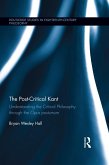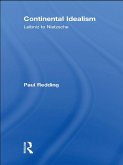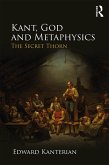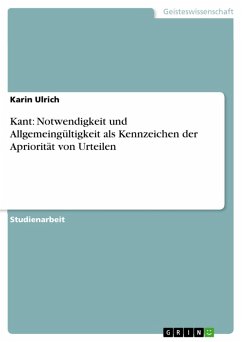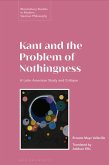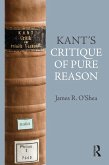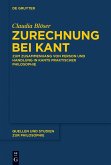"Hall's study offers a very clear, rigorous, stimulating and original attempt to reconstruct the systematic continuity between Kant's critical and post-critical philosophy, rightly emphasizing the central meaning of the a priori concept of the ether in OP [Opus Postumum]." - Giovanni Pietro Basile, Hochschule für Philosophie München
Dieser Download kann aus rechtlichen Gründen nur mit Rechnungsadresse in A, B, BG, CY, CZ, D, DK, EW, E, FIN, F, GR, HR, H, IRL, I, LT, L, LR, M, NL, PL, P, R, S, SLO, SK ausgeliefert werden.
"In this book Bryan Hall has followed up his articles on Kant's post-Critical writings to focus on the familiar puzzle of a supposed 'gap' in the Critical work, which the Opus Postumum was designed to bridge. His book promises to throw real light on Kant's later work and its controversial relation to the earlier Critiques."-Graham Bird, Emeritus Professor of Philosophy, Manchester University, UK
"After the publication of the B edition of the Critique of Pure Reason in 1787, Kant gradually came to the realization that there is a fundamental "gap" in his explanation of transcendental idealism; and in his final unfinished "Transition" project of the late 1790s and early 1800s, now known as the Opus postumum, he tried desperately to close this gap. Bryan Hall's The Post-Critical Kant explores this profound problem in Kant's metaphysics and epistemology in a highly thoroughgoing, incisive, and compelling way that will at the very least significantly inflect, and perhaps even drastically change, our conception of the Critical philosophy itself." -Robert A. Hanna, Professor of Philosophy, University of Colorado, USA
"A great new challenge in interpreting the still enigmatic aim of Kant's Opus postumum in line with the Critique of Pure Reason, attempting to solve its "problems" in the Analogies of Experience." -Ernst-Otto Onnasch, Assistant Professor of Philosophy, Utrecht University, Netherlands
"Hall's study offers a very clear, rigorous, stimulating and original attempt to reconstruct the systematic continuity between Kant's critical and post-critical philosophy, rightly emphasizing the central meaning of the a priori concept of the ether in OP." -Giovanni Pietro Basile, Journal of the History of Philosophy



